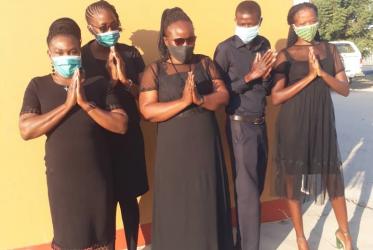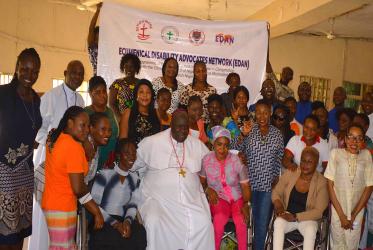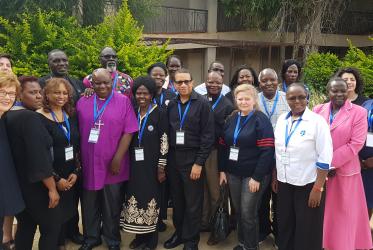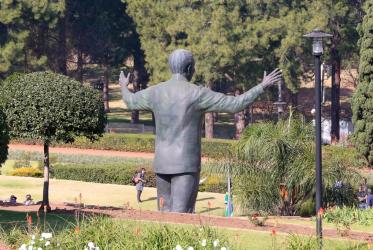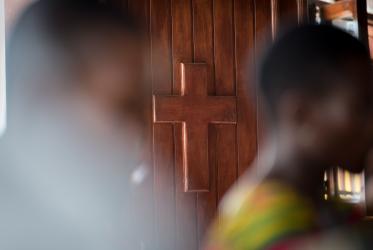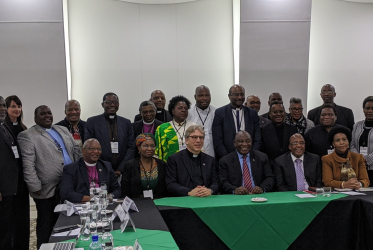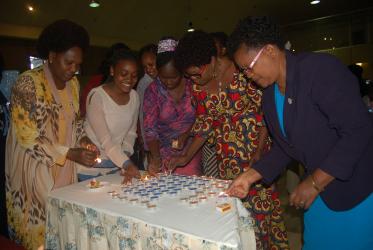Displaying 101 - 120 of 430
Thursdays in Black is growing in Namibia
20 August 2020
Advancing a disability-inclusive response to COVID-19
21 April 2020
South Sudan Church leaders welcome new cabinet
15 March 2020
Listening together to the pain of violent spaces
28 February 2020
"Mission for God’s people” explored at seminar in Kenya
20 February 2020
Young Africans are eager to grapple with challenges
09 January 2020
South Africans draw hope despite recurring challenges
16 December 2019
WCC delegation meets with South African President Ramaphosa
09 December 2019
WCC mourns passing of Prof. Vuyani Vellem
09 December 2019
South Sudan Council of Churches: peace “is a question of the heart”
11 November 2019

